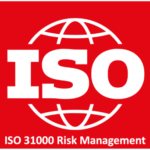The AI powered Risk Management Solution for SMEs and Government Projects
Win Contracts and Successfully Deliver Projects
Benefits
Use our proven method with integrated AI
Have the edge over the competition when bidding for contracts.
Demonstrate professional grade Risk Management to investors, banks, ISO assessors and more.
Improve accountability, communication, and planning whilst avoiding the negative impact of unexpected costs, delays, safety concerns, reputational damage and quality problems.
Faster Risk Development
Easily create Risks using our AI prompts. Share, review and prioritise Risks for proactive mitigation.
Secure & Bias Free
Your data is secured and only accessible by you. The AI does not use your sensitive data to provide suggestions for other users. Our unique method also allows you to review all AI suggestions to spot and avoid biases.
Access Anytime, Anywhere
See and share you Risk data from any device, from the office or on the go.
Calculate Benefits & Transform Threats into Opportunities
Our proven method establishes the ROI of actively managing threats and taking opportunities.
Our method uses integrated AI
Our AI assistant simplifies the process of identifying, creating, and managing Risks.
With intelligent insights and real-time updates, you can stay ahead of threats.


Using the AI Tool
The Risk Right Tool uses in-built AI to drastically reduce the time needed to perform accurate Risk analysis and develop detailed response plans, keeping your projects on time and in budget as well as helping achieve wider benefits. It also improves communication between stakeholders, aids reporting and enhances organisational learning.
SaaS Solution
Keep your Risks secured, organized and accessible from anywhere, anytime.
Retain Knowledge
Ensure that knowledge is retained by collecting and storing Risk details from all stakeholders, even after they move roles.
Here to Help
Tailored Consultancy and Audits
We can tailor definitions for performance, safety and reputation to ensure your Risks are consistently and objectively assessed. We can also develop you governance processes to make accountability clearer. And we can define your Risks, setting you up for ongoing success. All this can be captured in your unique set of processes and plans for your organisation.
Audit Ready
Our established process provides an initial level of assurance that your Risks are under control.
Analytics
We can independently report on the progress of bringing your Risks under control.
The Comprehensive and Affordable Risk Management Solution for SMEs and Government Projects
Unique 8-Step Method
Our method, proven in Government projects and Defence suppliers for over a decade, is now available to SMEs.
Integrated AI
Our established method with integrated AI provides you with reliable results at every step, bringing you advice faster than ever before, for you to use as you see fit, keeping you in control.
Risk Register Overview
With all Risks developed using the same process and the same AI, you can consistently and accurately prioritise your Risks for treatment, to avoid the impact of unwanted costs, delays, safety issues, reputational damage and quality problems.
Get in Touch
Reach out to explore how we can enhance your productivity through effective Risk Management.
By clicking 'Contact Us' you agree to our Terms and Conditions.

Meet
Our Team
Introducing the visionaries behind riskright.co.uk




Start Controlling Your Risks Now
Leverage our AI and proven method to create effective response plans and enhance your organization’s Risk Management capability today.

